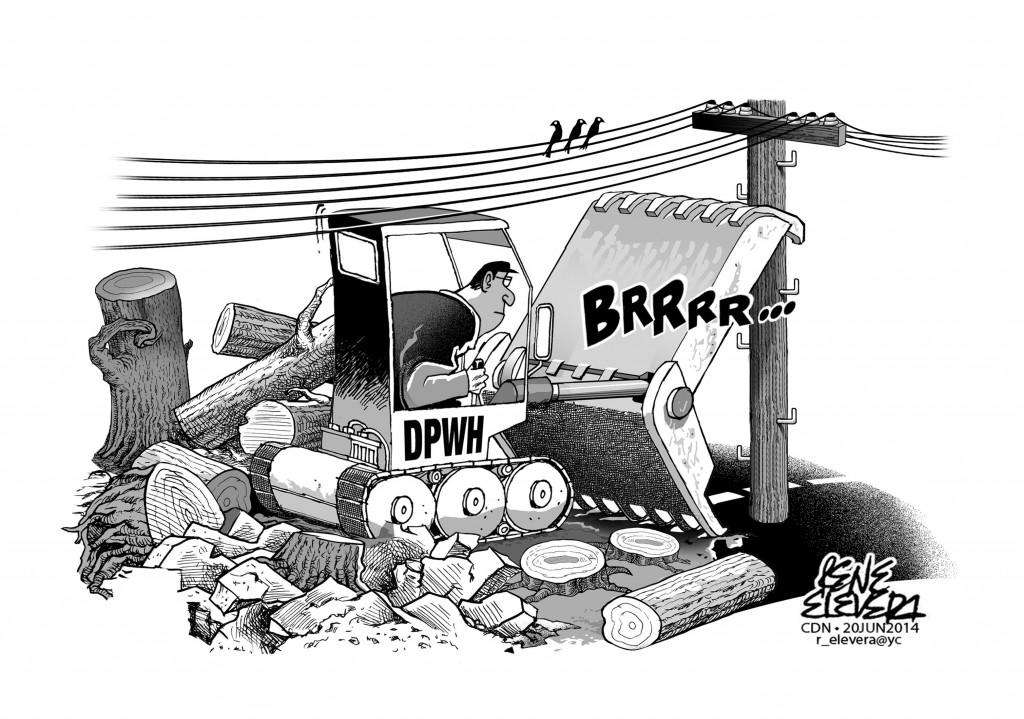Something doesn’t add up in the Department of Public Works and Highways.
In last Tuesday’s 888 News Forum, Cebu City District Engineer Fernando Cruz said that some of their road projects are delayed because of problems with road-right-of -way (RROW) and utility posts standing in their path.
A project gets stalled, he said, because DPWH can’t touch the poles.
The RROW problem is a common headache. New rules that leave the DPWH to negotiate with land owners to agree on a fair price allows the process to drag on for years.
Yet the DPWH has no fear of dealing with trees standing in the way. Not the dead wood that utility poles are made of but living trees with leaves and roots still firmly into the ground.
We’re not saying that the DPWH should ignore utility posts that slow down road widening efforts.
The poles carry important cables for power, telephone and cable TV. They need special removal.
But it’s not right for the department to act with impunity in cutting down living trees whose beneifts in terms of shade, carbon capture, oxygen production, anti-soil erosion and sheer natural beauty in our choked urban landscape are real.
The indecent haste in which the DPWH sent chain saws and backhoes to remove over 80 fire trees in the Osmeña Road, the majestic acacias in the Carcar-San Fernando southern highway, and last month, a pre-war “balete” tree on M. Velez Street were violations of law.
There were no tree-cutting permits issued for the operation by the Dept. of Environment and Natural Resources (DENR).
There was only deception in applying for tree-balling permits, then sending crews to rip out the trees when no one was looking.
The DPWH has its values distorted.
The problem is not just hapening in Cebu. Other road projets around the country have angered eco-conscsious residents in Iloilo, Pampanga, Sorsogon where large trees have also disappeared.
Trees should part of the road architecture, not treated like pests.
Vigilance in the community is needed so that the DPWH fears an outraged tree-loving citizenry more than a private utility that owns those poles.
